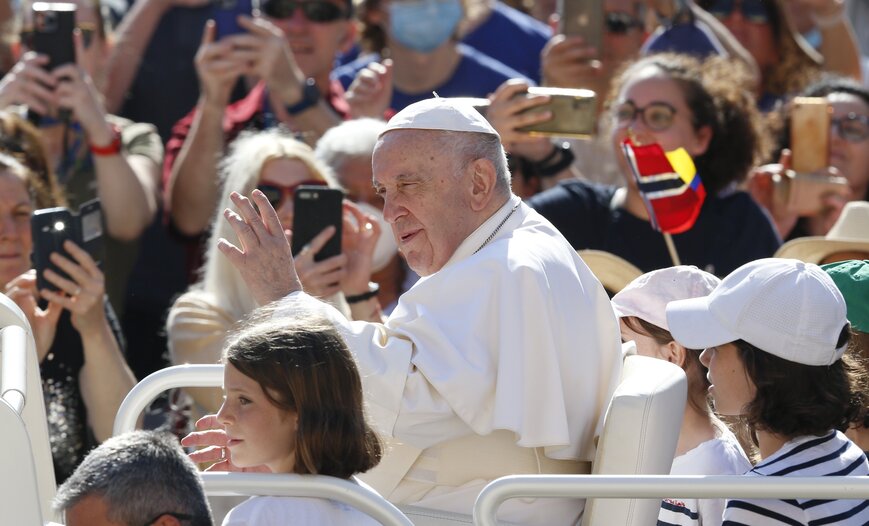The Pope continues a precious balance in his Wednesday audiences on old age. Last week he exhorted them not to feel victimized by age and to have a good mood. However, today he went off script and improvised some very suggestive ideas. He stated that "there is no lack of those who take advantage of the age of the elderly to deceive them, to intimidate them in a thousand ways... to take possession of their savings". And he made it even more explicit: "They are left unprotected and abandoned without care. Offended by forms of contempt, or intimidated into giving up their rights, also in families. This is serious, but it also happens in families".
Pope Francis began his reflections with Psalm 71, which says: "Do not forsake me when my strength fails. He went on to denounce in a calm tone how "the elderly are discarded, abandoned in nursing homes, without their children going to meet them, or going only a few times a year. The elderly are placed in the corner of existence. And this is happening today. We have to reflect on this".
A global problem
The Pope considers this issue to be of the utmost importance, even if it does not make headlines and is not on the agenda of the most urgent political issues of the day. "The whole of society must hasten to care for its elderly, who are more and more numerous, and often also more abandoned. When we hear of the elderly being stripped of their autonomy, their security, even their home, we understand that the ambivalence of today's society in relation to the elderly is not a problem of one-off emergencies, but a feature of that throwaway culture that poisons the world in which we live."
It seems impossible to listen to the Pope and not relate his reflections to the pro-euthanasia mentality that is becoming more and more widespread. "The consequences are fatal. Old age not only loses its dignity, but doubts whether it even deserves to continue. Thus, we are all tempted to hide our vulnerability, to hide our illness, our age, our old age, because we fear that they are the prelude to our loss of dignity. Let us ask ourselves: is it human to induce this feeling? Why is modern civilization, so advanced and efficient, so uncomfortable with illness and old age? And why is politics, which shows itself so committed to defining the limits of a dignified survival, at the same time insensitive to the dignity of an affectionate coexistence with the elderly and the sick?"
Relying on the power of prayer
The Pope encourages the elderly to pray with confidence, for "prayer renews in the heart of the elderly the promise of God's faithfulness and blessing. The elderly rediscover prayer and bear witness to its power. Jesus, in the Gospels, never rejects the prayer of those who need help. The elderly, by their weakness, can teach those who live other ages of life that we all need to abandon ourselves to the Lord, to invoke his help. In this sense, we must all learn from old age: yes, there is a gift in being old, understood as abandoning oneself to the care of others, beginning with God himself".
Before closing the meeting, Pope Francis again improvised some questions to examine one's own conscience. "Each of us can think about the elderly in our family. How do I connect with them? How do I remember them? If I seek to be with them, if I respect them. The elders of my family, have I erased them from my life or do I go to them to seek wisdom, the wisdom of life? Remind yourself that you too will be an old man or woman. Old age comes to everyone, and how would you like to be treated in old age? Treat the elders of your family in this way, they are the memory of the family, of humanity, of the country".







